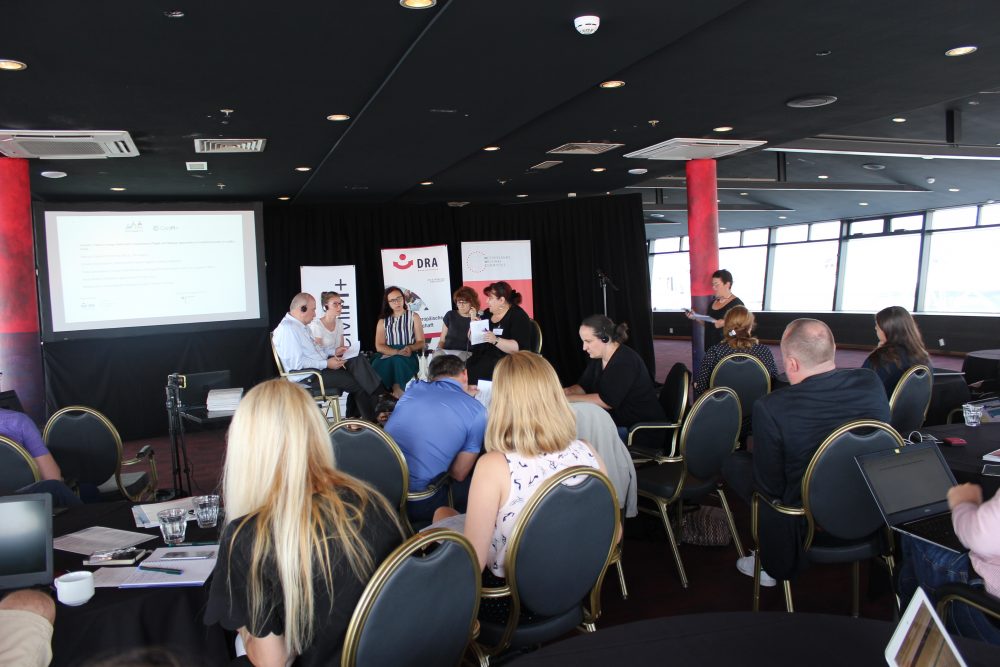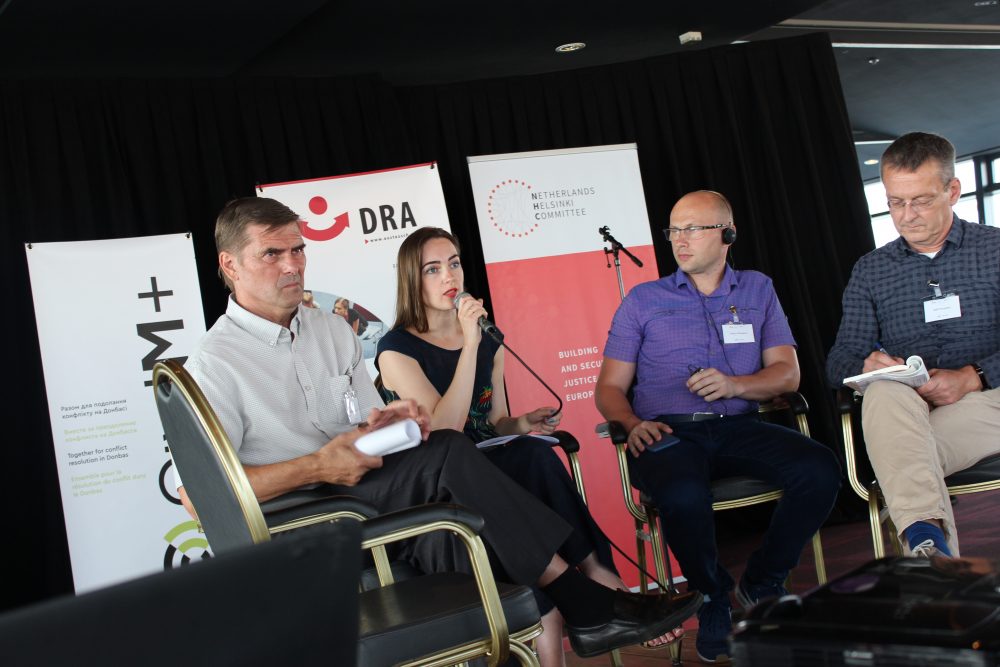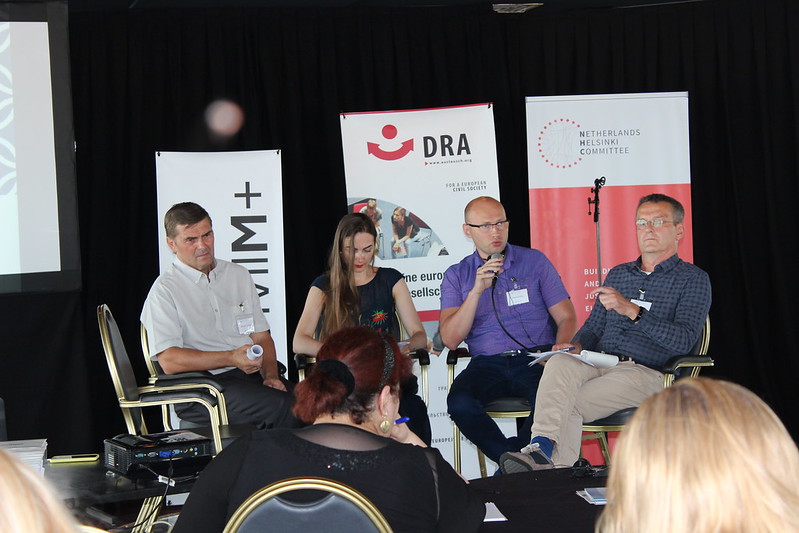Content
Re-establishment of justice and dialogue in the OSCE conflict regions – two angles of transitional justice
On June 25-26 CivilM+ Platform and CSP Platform members met for an expert seminar “Re-establishment of justice and dialogue in the OSCE conflict regions – two angles of transitional justice“. Among the challenges Safi van’t Land, Impunity Watch, mentioned that when it comes to transitional justice, often the activities are focused on consequences of the conflict and not enough attention is paid to its root causes. Another challenge is inclusion of all society and in particular the marginalised groups in the design of transitional justice framework. Victim groups often remain side-lined from peace processes. She also mentioned that often stakeholders focus on the criminal justice, but when only this component of the transitional justice process is implemented, it does not necessarily provide remedies and restore piece.

Discussing the experience of the Balkan countries, the experts agreed with Mrs. van’t Land’s statement, saying that even though formally the war and shelling is over for many years, the conflicts in the societies still continue. One of the reasons for that was strong focus on the criminal justice procedures and the failure to establish coherent process how justice can guide peacebuilding. Trials did not influence public opinion and thus reconciliation is still on hold. Izabela Kisić, Helsinki Committee for Human Rights in Serbia mentioned that the most difficult thing is creation of unified narrative. She believs that Serbia hasn’t changed its narrative at all, the views which were widespread at the beginning of the conflict are still present in public discourse. Reforming institutions and creation of narrative should be an inseparable processes. One of the good tools in this process is school education, which can bring sustainable change of the narrative and honest reflection about the past.
Talking about Georgian experience with the transitional justice Paata Zakareishvili, Former State Minister of Georgia for Reconciliation and Civic Equality, mentioned that the process is overly politicised and there is hardly any attempts to implement transitional justice in Georgia. There are some single court processes, but there are no attempts to create the truth commission, or any institutional setting dealing with the issue.
Discussion Experience of legal and dialogue approaches to transitional justice in conflict areas
Valerii Novykov, Luhansk regional human rights centre Alternativa, Ukraine, said that currently Ukraine has several draft concepts of transitional justice, but they need to come through broad discussion in the society, because there are many visions of the process and many approaches to it, but if society doesn’t find consensual solution, the transitional justice will not be efficient.


